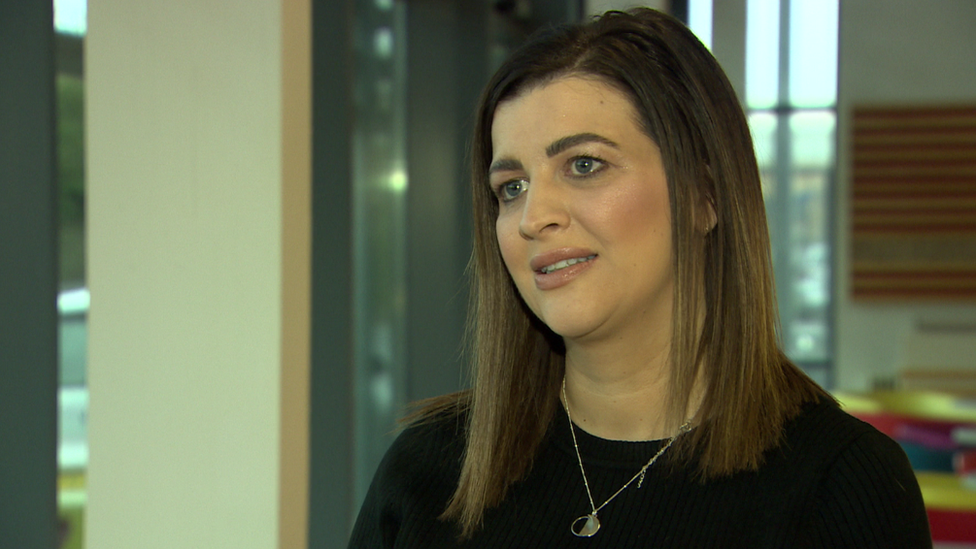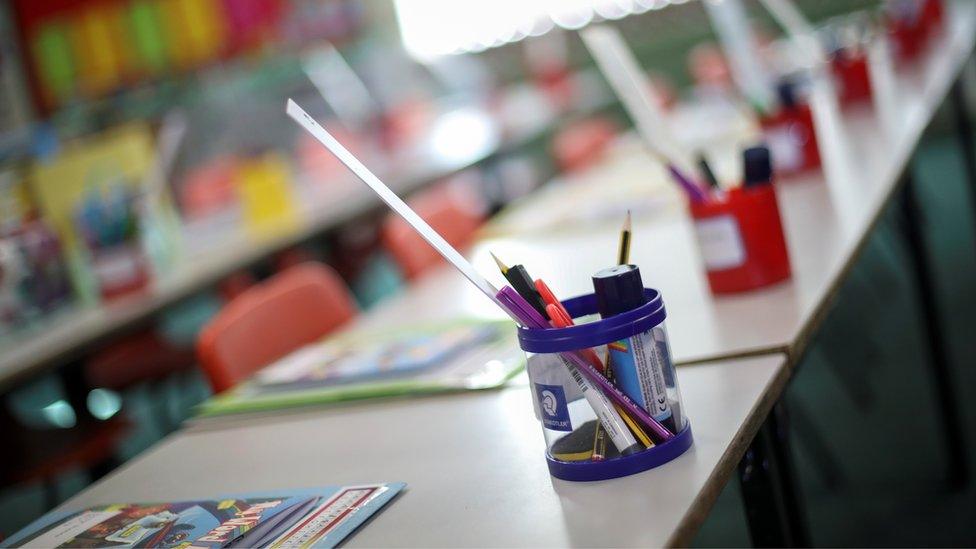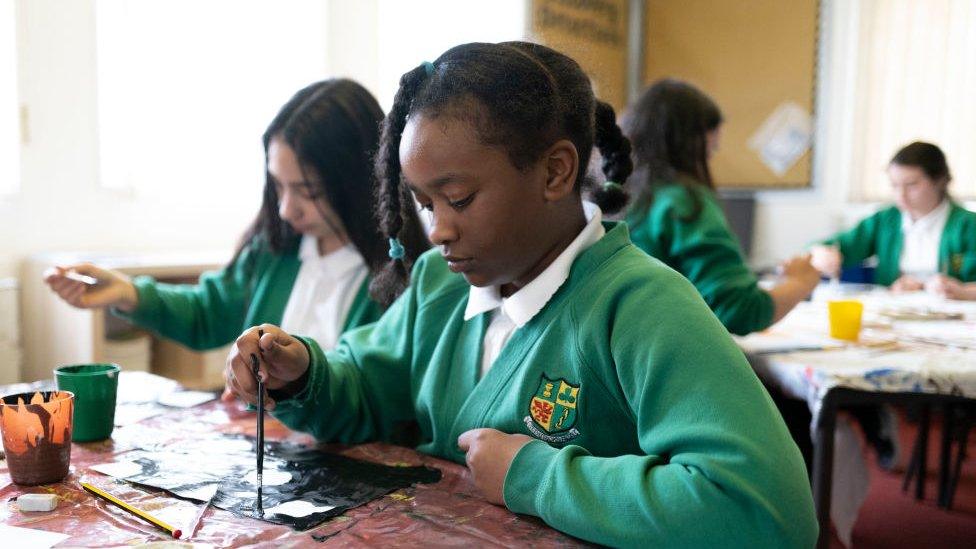NI Education: School attendances hit worst level on record
- Published

Absences could be linked to mental health issues and long-term effects of lockdowns during the pandemic
School attendances in Northern Ireland over the past two years have been the worst on record.
In both the 2021/22 and 2022/23 school years, about 30% of pupils had absence rates classed at "chronic" or "severe chronic".
That is according to figures provided by the Department of Education (DE).
The rate of persistent absence among pupils in Northern Ireland is also significantly higher than in England or Wales., external
There are likely to be a range of reasons for the high absence rates, including:
The long-term effect of school closures during lockdowns
The rise in mental health issues among young people
Problems some children have getting support services
Some principals have also identified more pupils with emotionally-based school avoidance, which is linked to mental health and wellbeing.
Term-time holidays on the rise
The number of primary school pupils being withdrawn from schools for family holidays during term time has also risen to high levels.
Kevin McArevey, principal of Holy Cross Boys' Primary School in north Belfast, said he did not agree with taking children out of school for holidays.
"The link between attendance and academic success is undeniable," he told BBC NI's Good Morning Ulster programme.
"What parents need to understand is that when their child is not here, the rest of the class is surging ahead."
The DE classes chronic absence as a pupil being absent for between 10% and 20% of days during a school year - from 19 to 38 days.
Severe chronic absence is when a pupil missed more than 20% of days in a school year - more than 38 days.
In 2021/22 almost 100,000 pupils had absence rates that were classed as chronic or severe chronic, which is about a third of all pupils.
That absence rate fell during 2022/23 but almost 30% of pupils still had absence rates classed as chronic or severe chronic.
'Complacency about attending school'
The absence rates are "clearly a concern", Claire McClelland, from the Department of Education, told BBC News NI.
"Over the past number of years we have seen a number of challenges, particularly post-Covid, around attendance," she said.
"10% absence equates to 19 days of school, or every other Friday for a whole school year."

Claire McClelland said parents need to take school absence seriously.
Ms McClelland, who is the department's director of raising aspiration, supporting learning and empowering improvement, said there were a range reasons for high absence rates.
"Perhaps we've had quite a long period of time where we've had lockdown, we've had remote learning - and that importance of attending school, perhaps there's some complacency around that."
She added a number of children and young people find it difficult to attend school due to emotional health and wellbeing issues, amongst others, which makes it difficult to pinpoint individual cases.
Ms McClelland said pupils' level of achievement is impacted by a lack of attendance and it affects their social and emotional connections, such as how they make friends.
"We need parents and communities to take this seriously and recognise the importance of attending school," she added.
Cheaper holidays over school
Despite the figures, a number of schemes for schools to provide pupils with counselling or help those struggling after the pandemic have been cut.
In addition, more than 200,000 school days in 2022/23 were missed by primary school pupils withdrawn from class for family holidays that were not agreed with the school.
Ms McClelland said that was 27% more days missed for that reason since 2018.
"I recognise that in terms of the cost of living it is expensive to go on holiday outside term time," she said.
"But what I would say to parents is that we'd really discourage going out of school during term time unless it's absolutely necessary."
In England, parents can be fined £60 or more if their child is persistently absent from school, but that is not the case in Northern Ireland.
However, some experts have said that fining parents does not work and can make the problem worse.
Related topics
- Published17 June 2023

- Published16 May 2023

- Published23 February 2023
